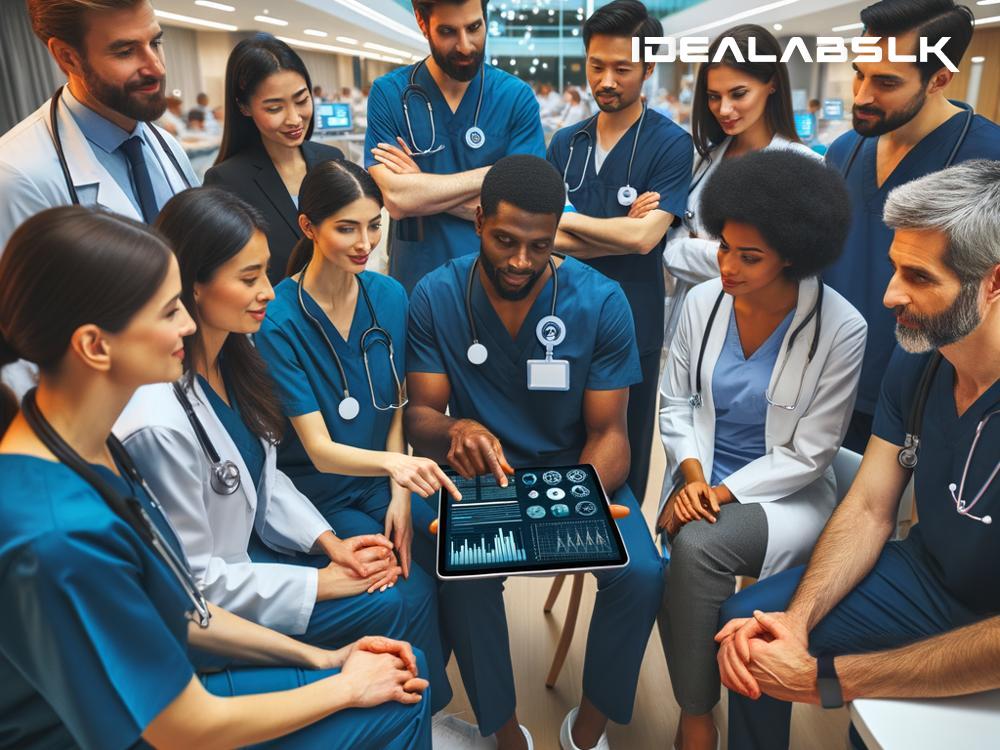AI-Powered Predictive Analytics: Revolutionizing Healthcare Applications
In recent years, Artificial Intelligence (AI) has been a game-changer across various sectors, and healthcare is no exception. AI-powered predictive analytics is at the forefront of transforming healthcare applications, making it possible to foresee medical conditions and outcomes with a degree of accuracy previously deemed unattainable. In simple terms, just like your smartphone learns your daily routines to offer personalized suggestions, AI in healthcare learns from vast amounts of health data to predict future health events. This article demystifies how AI-powered predictive analytics is shaping the future of healthcare, making it more proactive, personalized, and efficient.
What is AI-Powered Predictive Analytics?
AI-powered predictive analytics incorporates machine learning and AI algorithms to analyze large datasets to make predictions about future outcomes based on historical data. In healthcare, this translates to analyzing patient data and wider health trends to forecast health incidents before they occur. Imagine a weather forecast; just as meteorologists predict the weather to prepare us for what's coming, AI in healthcare predicts health issues, allowing doctors and patients to act swiftly and prevent adverse outcomes.
Revolutionizing Predictive Healthcare Analytics
-
Early Disease Detection: Early detection of diseases can significantly impact patient outcomes, and this is where AI-powered tools shine. By analyzing patterns in the vast sea of medical data, AI can identify subtle signs of diseases, such as cancer, heart disease, and diabetes, way before traditional methods would catch them. This early intervention can mean treatment is less invasive, significantly cheaper, and far more likely to succeed.
-
Personalized Treatment Plans: The one-size-fits-all approach is often not effective in healthcare. AI-driven analytics take into account an individual's genetics, lifestyle, environment, and even social determinants of health to tailor treatment plans that work best for them. This personalization ensures that the treatment is more effective, enhancing patient outcomes and satisfaction.
-
Predictive Analytics in Managing Chronic Conditions: Managing chronic conditions like diabetes and hypertension requires constant monitoring and adjustments in treatment. AI models can predict fluctuations in a patient's condition and recommend adjustments in real-time, helping to keep the condition under control and reducing the risk of complications.
-
Enhancing Hospital Operations: Beyond direct patient care, predictive analytics can streamline hospital operations. From predicting patient admission rates to managing staffing needs and optimizing supply chain logistics, AI can ensure hospitals operate more efficiently while providing high-quality care.
-
Predicting Epidemic Outbreaks: AI predictive models can analyze global health data, including social media posts, news reports, and other digital sources, to predict and track disease outbreaks. This capability allows for earlier interventions, potentially saving thousands of lives during events like the COVID-19 pandemic.
The Challenges and Ethical Considerations
While the benefits are clear, the integration of AI in predictive healthcare analytics doesn't come without challenges. Data privacy and security are paramount, as healthcare data is sensitive and personal. Ensuring that patient data is protected while being used to train AI models is a significant concern.
Moreover, there's the challenge of bias in AI algorithms. The data used to train these models must be diverse and representative; otherwise, the predictions could be biased, leading to disparities in care. Ethical considerations are also essential to ensure that the increased reliance on AI doesn't lead to a decrease in the human touch that is so crucial in healthcare.
The Road Ahead
The potential of AI-powered predictive analytics in healthcare is immense. However, realizing this potential requires a deliberate and balanced approach, addressing both technological and ethical challenges. Investment in AI research, robust data privacy and security measures, and ongoing efforts to ensure diversity and combat bias in AI models are crucial.
As we move forward, the collaboration between AI developers, healthcare professionals, and policymakers will be vital in harnessing AI's power to transform healthcare. The ultimate goal is to create a healthcare system that emphasizes preventive care, personalized treatments, and operational efficiency, leading to better patient outcomes and a healthier society.
In conclusion, AI-powered predictive analytics is not just a trend; it's the future of healthcare, promising a world where healthcare is not just reactive but predictive, personalized, and more effective. This advancement represents a significant leap towards a future where healthcare is accessible, equitable, and centered around the well-being of each individual.

